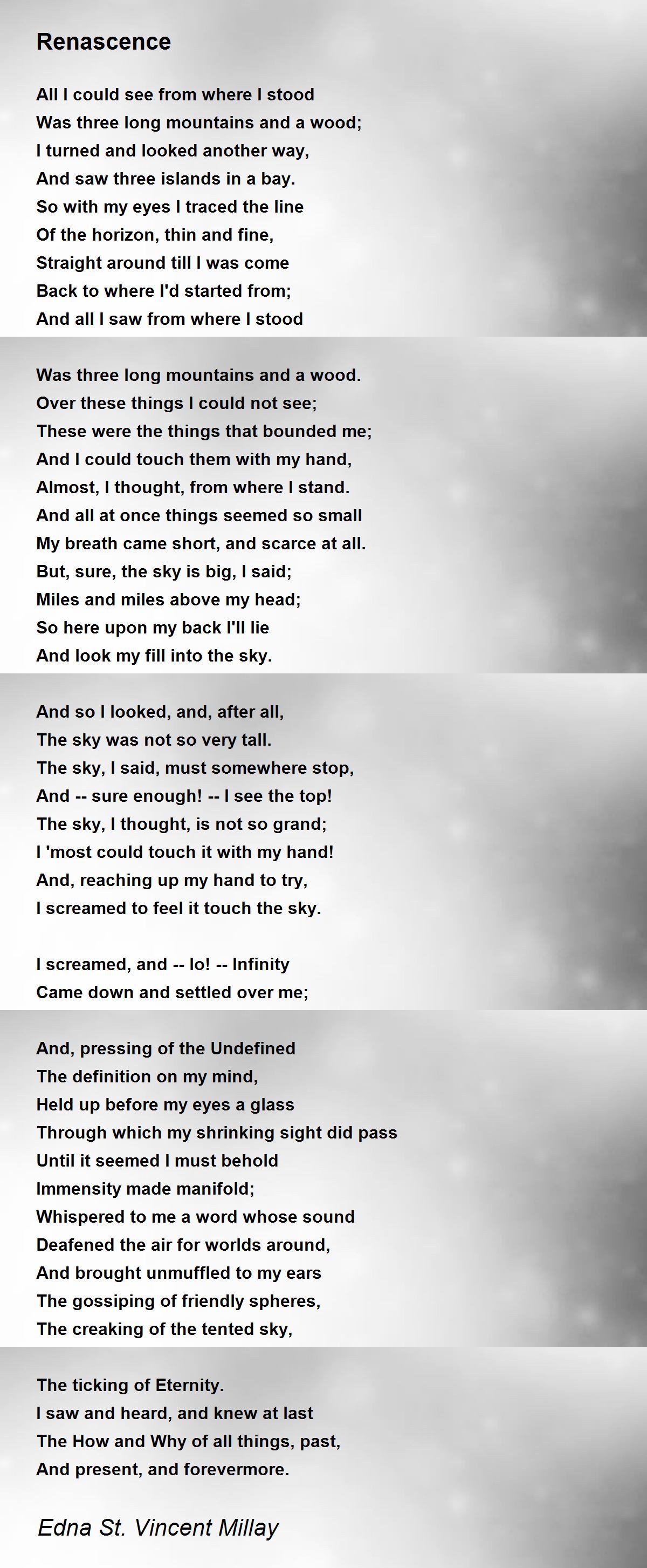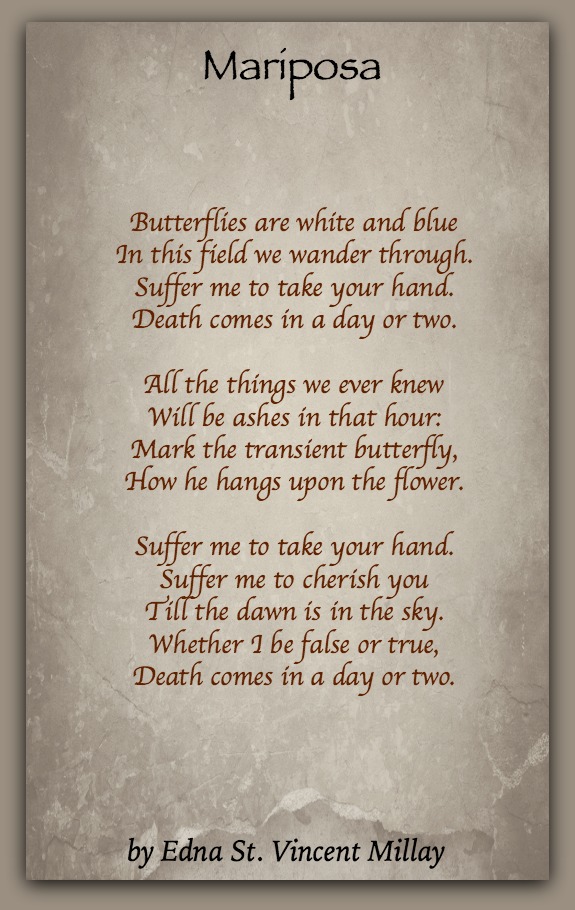

Vincent Millay, including one of the best-known American poems “Renascence”. Vincent Millay, the winner of the Pulitzer Prize for Best Volume of Verse in 1922.This book contains a classic collection of poetry written by Edna St. Dow heard Millay reciting her poetry and playing the piano at the Whitehall Inn in Camden, Maine, and was so impressed that she offered to pay for Millay’s education at Vassar College. Millay used the publication to promote her own career, maintaining correspondence with editors and poets who congratulated her on her publication. In the immediate aftermath of the Lyric Year controversy, wealthy arts patron Caroline B. The first-place winner Orrick Johnswas among those who felt that “Renascence” was the best poem, and stated that “the award was as much an embarrassment to me as a triumph.” A second-prize winner offered Millay his $250 prize money.The scandal brought Millay much attention, and “Renascence” was widely distributed and even taught to schoolchildren as an exemplar of American poetry. On publication, Millay’s poem was widely considered the best submission, and her eventual award of fourth place caused a major scandal. Her mother, Cora Millay, saw an announcement for a poetry contest sponsored by The Lyric Year, an annual volume of poetry, and encouraged Edna to enter the poem into the contest.The poem was well received and was published in the annual volume, along with other best entries. The poem may have been influenced by Millay’s childhood experience of nearly drowning.

Battie in Camden, Maine (where a plaque now commemorates the writing of the poem). At some point, Millay wrote “Renascence” while looking out from the summit of Mt. Nicholas, a children’s magazine, throughout her teen years, and had become a proficient poet. Millay had written and published poetry in St. In 1912, the nineteen-year-old Millay, encouraged by her mother, entered her poem “Renascence” in a poetry contest in The Lyric Year.

This poem appeared in Renascence and Other Poems (1917) and is in the public domain. Rolls, twinkling, from its grass-blade top. Perished with each,-then mourned for all! That, sick’ning, I would fain pluck thence Through which my shrinking sight did pass


 0 kommentar(er)
0 kommentar(er)
